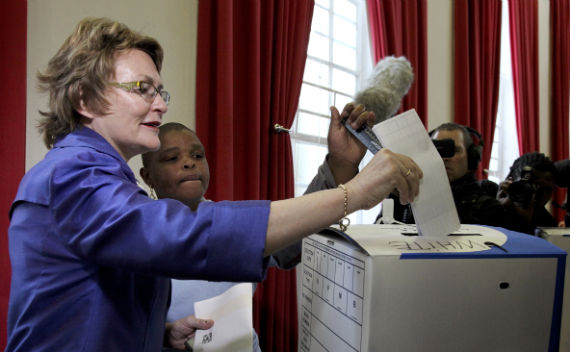South Africa’s Municipal Elections: Initial Impressions
More on:

While formal results are not expected until Saturday, it appears the Democratic Alliance (DA) has made significant gains in South Africa’s municipal elections. The African National Congress (ANC) continues to hold the majority of seats, but the DA’s relative success suggests that it may be growing into an alternative to the ANC, at least at the local and provincial level. Perhaps more importantly, the DA has begun to attract blacks’ votes, transcending its traditional support base of South African whites and coloureds. For a country where previous voting largely followed racial lines, this could be a significant shift in South African politics, if the DA can sustain its present trajectory. Voters changing allegiance to the DA may derive from increasing dissatisfaction with ANC’s policies and alleged corruption as well as the appeal of individual DA candidates.
The DA’s overall share of seats jumped from 14 percent during the 2006 election to at least 23 percent during the 2011 poll, and as reported by RFI, “it has also won symbolically important seats in traditionally black townships like Alexandra, Khatlehong and Pimville, near Johannesburg.”
Notably, the DA’s party leader, Helen Zille, has a anti-apartheid background. A journalist with the distinguished Rand Daily Mail, she broke the story that anti-apartheid martyr Steve Biko was tortured before his death. She was also involved with activist anti-apartheid organizations like Black Sash.
More on:
 Online Store
Online Store